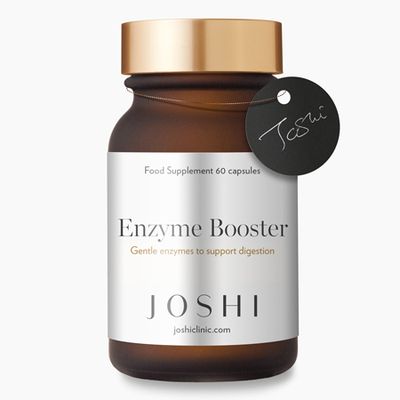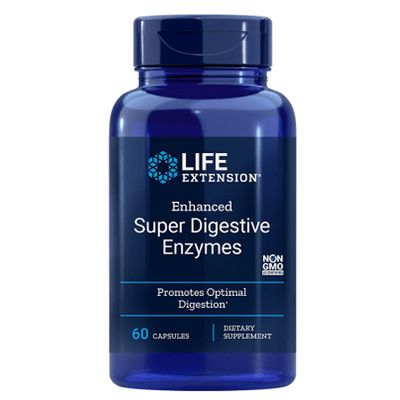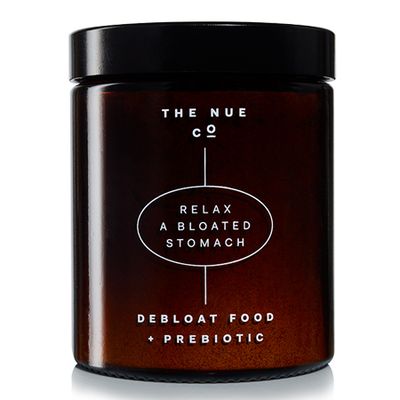
Should You Be Taking Digestive Enzymes?
Firstly – what are digestive enzymes?
In a nutshell, digestive enzymes kick-start digestion and help break your food down into usable nutrients. As Shabir Daya, pharmacist and co-founder of Victoria Health explains, “Our bodies require sufficient amounts of digestive enzymes to break down food as it passes through the gastrointestinal tract. As we ingest food, digestive enzymes are released in the small intestine from the liver, gall bladder and pancreas,” explains Shabir. “There are three main digestive enzyme categories: amylases help break down sugars, lipases break down fats, and proteases break down proteins.” Your body naturally produces digestive enzymes, but health experts, including Shabir, agree supplementing with additional enzymes will ensure you’re deriving the maximum nutritional value from your food. In short, they could be the boost your gut, and overall wellbeing, need.
What are some of the signs you could do with boosting your enzyme intake?
“If you suffer from indigestion or bloating, it could be worth taking a broad spectrum digestive enzyme,” explains Dr Joshi, founder of The Joshi Clinic on Wimpole Street. “So many people assume heartburn and indigestion should be treated with an anti-acid. But, if you think what your body is trying to tell you, you’ll realise that ‘indigestion’ is your body trying to digest the food and needs help.” Shabir also explains production of digestive enzymes can diminish for several reasons including age, stress, poor eating habits (notably diets excessively high in either fats, protein or carbs), rushing meals, inadequate vitamin and mineral levels, and exposure to artificial colours and preservatives. “We are constantly being reminded about drinking plenty of water, eating high fibre foods and consuming lots of fresh fruits and vegetables and yet large numbers of the population still experience constant bloating, gas and indigestion. The reason could be the lack of digestive enzymes,” Shabir stresses.
How often should you take them?
Aim to take them daily for the best results, not just sporadically. Dr. Tiffany Lester, medical advisor at The Nue Co, whose Debloat supplement is packed with enzymes and Ayurvedic herbs to reduce symptoms of IBS – including bloating, nausea, gas and abdominal cramps – by up to 57%, also advises taking enzymes on a full stomach. “If you don’t take digestive enzymes with food, they won’t metabolise properly. For the best benefit with chronic digestive issues, take them daily – they can also be helpful when travelling our eating out to help prevent any potential reactions,” she says.
Aside from easing bloating, are there any other benefits?
Due to their ability to aid digestion of all nutrients, including fats, Dr Joshi believes taking digestive enzymes could help keep your weight in check. “If you are absorbing as much of the nutritional content of your food as possible, it’s very likely your biomechanical needs are met, and cravings may reduce as a result. In any event, having well digested food will help reduce bloating and reduce the effect of undigested food on the gut. With less irritation and inflammation, the body will be less swollen, have less water retention and look slimmer,” he says. Tiffany agrees, saying optimal digestion can help you lose water weight associated with inflammation, but due to the fact digestive enzymes don’t directly affect fat cells, they’re not a solution for more permanent weight loss.
Is there a natural way to boost digestive enzymes?
If you aren’t keen on taking a supplement, it could be worth increasing your intake of certain foods. For example, pineapple contains a type of protease that helps break down protein, while mango and bananas contain amylase to help digest starches, and miso, kefir and avocados contain lipase to support fat digestion. Just remember to chew well, as it’s the enzymes in your saliva that trigger digestion to break down food. For this very reason, Shabir also recommends ditching chewing gum, which can fool your digestive system into releasing enzymes for no reason, which can result in possible glandular exhaustion.
If you want to buy a digestive enzyme supplement, what should you be looking for?
For those trying digestive enzymes for the first time, it’s worth looking for a broad-spectrum supplement that contains all three enzymes. Tiffany adds that if you want to go one step further, a consultation with a digestive expert will ascertain which digestive enzymes you may be lacking in. If you have a lactose intolerance, for example, then your body is unable to digest dairy, so you may benefit from a supplement containing lactase.
If you already take a probiotic, can you take enzymes too?
“In an ideal world, you should take both,” Shabir adds. “Probiotics are a vital part of the digestive system because they ensure pathogens (i.e. bad bacteria) don’t thrive in the gut. They’re also involved in the last stage of digestion, which occurs in the colon where these beneficial bacteria break down the remnants of food, boost the immune system and provide some nutrients such as B vitamins. Digestive enzymes, however, are the cornerstone of a healthy digestive system. Without sufficient levels of these enzymes, we wouldn’t be able to break down food, ensure healthy motility in the gut nor extract nutrients from our food.” In short, the two work in tandem.
What’s the bottom line?
Good digestion, and optimal gut health, means absorbing nutrients from the foods you eat – and for that, digestive enzymes are key. But remember it’s not only about how we digest our food, it’s what, how and where we eat that can affect the digestive process and the production of enzymes, too. If you suffer from a leaky gut or inflammatory bowel problems associated with IBS, the experts say it’s pretty likely you’ll benefit from taking a digestive enzyme supplement. But if you take into account other factors, which can take their toll on digestion – notably poor eating habits, inadequate chewing, age and stress – chances are a digestive enzyme supplement could be worth the investment.
As Shabir says, “The health of our gut is the cornerstone to our wellbeing. With so many factors attacking the health of the gut, it would appear to be almost impossible to maintain optimal gut health. Healing the gut lining will allow you to enhance your immunity, improve your digestion, reduce food intolerances, improve bowel movement and your mood, too. Taking a digestive enzyme supplement will take the load off the gut and is a great way to manage gut health.”
Want in? Shop the experts’ edit of digestive enzymes for better gut health here…
*Features published by SheerLuxe are not intended to treat, diagnose, cure or prevent any disease. Always seek the advice of your GP or another qualified healthcare provider for any questions you have regarding a medical condition, and before undertaking any diet, exercise or other health-related programmes.
*Features published by SheerLuxe are not intended to treat, diagnose, cure or prevent any disease. Always seek the advice of your GP or another qualified healthcare provider for any questions you have regarding a medical condition, and before undertaking any diet, exercise or other health-related programmes.
DISCLAIMER: We endeavour to always credit the correct original source of every image we use. If you think a credit may be incorrect, please contact us at info@sheerluxe.com.


